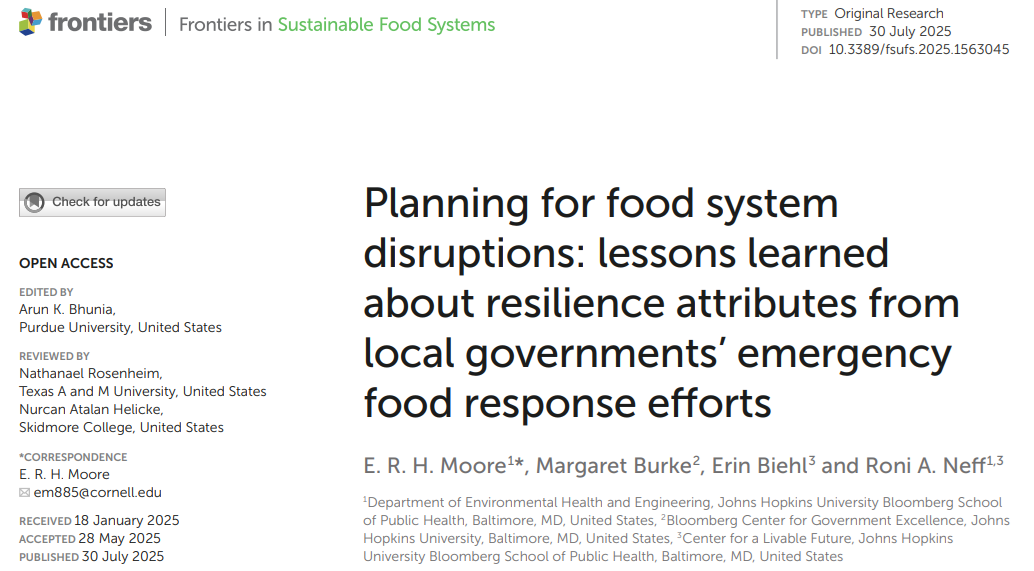New research from GovEx Community Manager Meg Burke and colleagues at the Johns Hopkins University School of Public Health finds that cities with seven key attributes are likely better able to keep their residents fed in times of crisis.
The characteristics—preparedness, connectivity, capital reserves, diversity, redundancy, flexibility, and equity—appeared to help local governments respond to food-related challenges during the COVID-19 pandemic. These findings, published in the journal Frontiers in Sustainable Food Systems, focused on how the qualities showed up in local responses, what helped or hindered the implementation of the attributes, and what programs or policies could make it easier for cities to build these strengths ahead of future emergencies.

These findings indicate the importance of investing in organizational development and policies that build these attributes so that future crises are less disruptive,” the research team wrote. “Actions may be specific strategies for strengthening internal resilience attributes or garnering leadership and policymaker support for food resilience planning.”
GovEx began researching food system resilience early in the pandemic, as interest in how to respond to supply-chain disruptions surged. In partnership with the Johns Hopkins Center for a Livable Future, we studied five local governments and their emergency food response efforts, leading to the development of a food system resilience guide for municipalities and the research discussed above. For more information on building resilience within local food systems, to put the guide to work in your city, and listen to two episodes of GovEx’s Data Points podcast about this important work, visit this resource page on our website.



